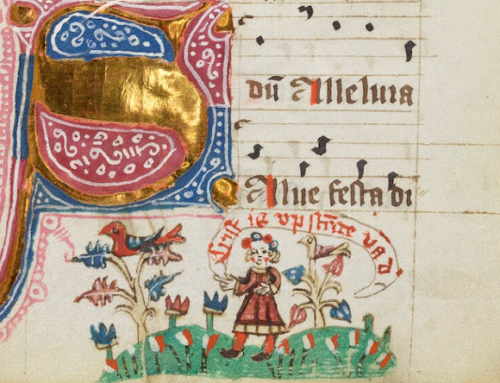For your average first-century Galilean apostle, fishing was the thing to do. Fish fill the stomach and pay the bills. And so, in the last chapter of John’s gospel, it’s perfectly natural for some apostles to be out on the water again, practicing their old trade (Matt 4:18–22). They need fish, or at least the profits from a good catch, to make a living.
God doesn’t need to make a living, and he certainly doesn’t need fish. God is Life Itself. By the divine command, he created the great sea monsters and all kinds of crawling living creatures with which the water teems (Gen 1:21). By his death and Resurrection, Jesus Christ has revealed to the world that he, though a man, is the Creator. He is God in the flesh. Therefore, the Eternal Word, through whom all things were made, who is eternally one with the Father, surely doesn’t need fish.
And yet our risen Lord interrupts the apostolic fishing trip. The miraculous catch of fish isn’t surprising: we’ve seen this before (Luke 5:1–11). A divine command, even spoken by a human mouth, is abundantly efficacious: Cast the net over the right side of the boat and you will find something (John 21:6). But before Peter can haul the catch ashore, he and the others notice that breakfast is already served: When they climbed out on shore, they saw a charcoal fire with fish on it and bread (John 21:9).
God doesn’t need fish. Nevertheless, Jesus still tells his apostles: Bring some of the fish you just caught (John 21:10).
Yes, the apostles had caught the fish, technically. And Jesus wanted those fish. But it was his divine power that made this Easter catch happen. He, with the Father and the Holy Spirit, created the fish, the nets, and the apostles. He created us. His show of divine power by providing a successful haul reminds us once again that, apart from Jesus, we can do nothing (John 15:5).
Within weeks, the ascended Jesus would send the Holy Spirit to transform his apostles definitively from fishers of fish to fishers of men. As God, it is his alone to give souls the grace of faith and make Pentecost a marvelous catch. But to these fishermen, he gives the light and strength necessary, through the sacraments, to bring him the fish that he himself provides. Saint Thomas Aquinas describes this cooperative ministry well: “The ministers of the Church should also bring something to this meal; but whatever it is, it has come from God” (Commentary on John 21).
The joy of spiritual fishing belongs to each of us, beginning with ourselves. Before fishing, the saints swallow the Gospel: hook, line, and sinker. And by their prayer, labor, and witness, they help others do the same. We hope to join them. But our virtues, the tools of the trade; our fish, the fruit of our spiritual labor; our casting, the very labor itself—all this is from God. What have we that we have not received (1 Cor 4:7)?
God doesn’t need our fish. But he wants our fish for our sake so that, at the heavenly banquet, he can say to you and to me: Bring some of the fish you just caught (John 21:10).
✠
Photo by Victoria Kure-Wu on Unsplash







